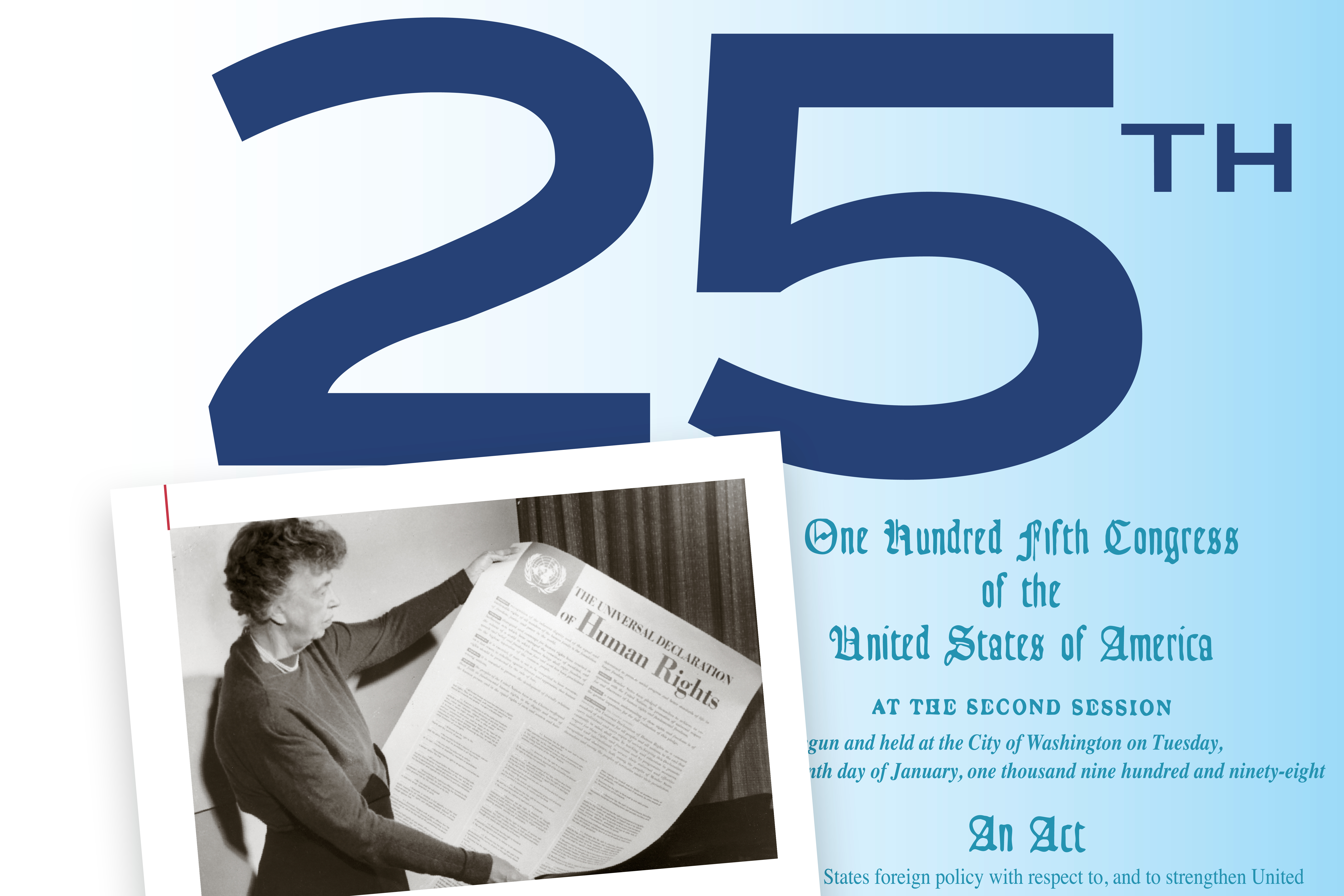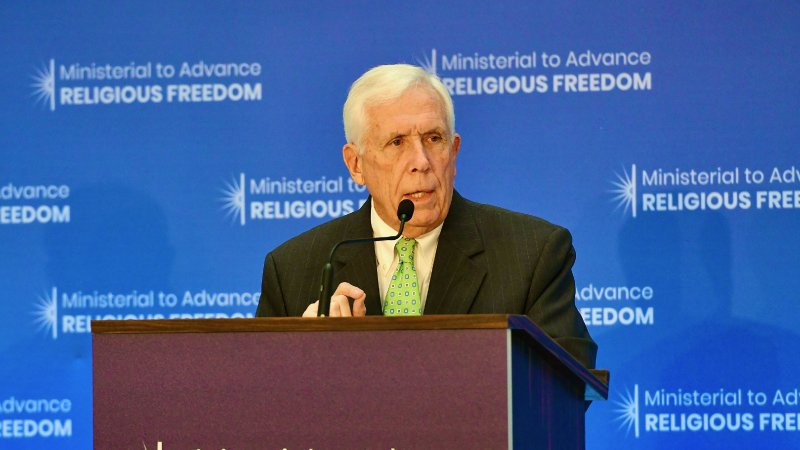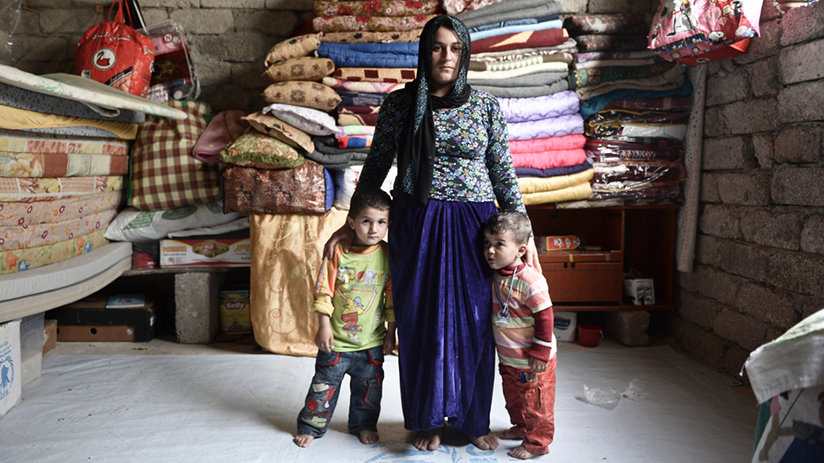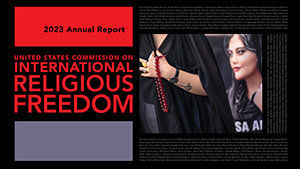
-
HOME
-
WHAT IS STANDOur Mission Our Values Our Help Contact
-
WHAT WE FIGHT FORReligious Freedom Religious Literacy Equality & Human Rights Inclusion & Respect Free Speech Responsible Journalism Corporate Accountability
-
RESOURCESExpert Studies Landmark Decisions White Papers FAQs David Miscavige Religious Freedom Resource Center Freedom of Religion & Human Rights Topic Index Priest-Penitent Privilege Islamophobia
-
HATE MONITORBiased Media Propagandists Hatemongers False Experts Hate Monitor Blog
-
NEWSROOMNews Media Watch Videos Blog
-
TAKE ACTIONCombat Hate & Discrimination Champion Freedom of Religion Demand Accountability
A Movement Transcending Continents, Cultures and Generations—25 Years of the International Religious Freedom Act
There was a time when religious freedom was not a priority. The belief was that, with advancing technologies, the relevance of religious freedom—and religion itself—would fade in the modern secularized world.

There was a time when the U.S. did business, fostered diplomatic and cultural ties and formed partnerships with nations with little or no regard for those nations’ abuses of their people’s freedom of religion.
World events changed all that. Massacres in Rwanda and Bosnia. The jailing of Catholic bishops and Protestant pastors in China. The cultural annihilation of Tibetans and Tibetan Buddhism. All these and other catastrophic abuses of religious minorities put the lie to the notion that religious freedom no longer mattered.
As the need for accountability and advocacy for religious freedom grew, so too did USCIRF’s area of influence and responsibility.
Consequently, in the fall of 1998, a landmark bill before Congress became law. In the ensuing quarter-century, that law—the International Religious Freedom Act (IRFA), which soldered international religious freedom (IRF) into America’s foreign policy—has made its impact felt among the family of nations.
Earlier this year, commemorating the 25th anniversary of IRFA’s passage, the U.S. Commission on International Religious Freedom (USCIRF) published a retrospective of that watershed legislation’s first quarter-century. USCIRF, created as part of IRFA, issued the 116-page document as “a historical memory of the process of creating a law whose aim was to promote and protect religious freedom for all people, in all nations, of all faiths or no faith at all,” and to cover “what has worked and what has fallen short, the mistakes and the milestones.”
Over the years, as the need for accountability and advocacy for religious freedom grew, so too did USCIRF’s area of influence and responsibility.
Rabbi David Saperstein, the Commission’s first chair, characterizes three ways in which USCIRF’s wide sweep of authority has had “a powerful impact on countries across the globe.” First, Saperstein points to USCIRF’s “impact on minority communities facing discrimination or harassment, who really didn’t think anyone in the world knew or cared about them and feel supported and encouraged that their story is being told.” Second, he cites the Commission’s impact on our own State Department which, due to USCIRF’s shedding light on global violations of freedom of religion, has installed in every embassy “a political officer or researcher who tracks religious issues that might otherwise be ignored or missed.” And third, “other countries are using our report as a template for their own diplomacy.”
Now, thanks to the International Religious Freedom Act and USCIRF’s work, religion and the freedom to practice it are part of the diplomatic and political conversation of every major nation on Earth, be they friend or foe. Freedom of religion, in fact, is a priority to authoritarian governments that, intent on consolidating their power, perceive it as an enemy to be crushed. As the retrospective points out, “A disturbing example of the long arm of authoritarianism in the modern age is China’s use of technology to censor and control members of faith communities.”
Yet despite the genuine tension and myriad threats to religious freedom, USCIRF’s report concludes on an upbeat note, citing some of the younger international religious freedom advocates who have “helped shape a new lane within the IRF movement.” One of those, Anna Sineva of the Church of Scientology, said, “IRF is a movement that transcends continents, cultures and generations. It inspires and gives hope.”
The retrospective echoes that hope, while cautioning that “we must be clear-eyed about the ongoing obstacles moving forward. Though the United States should not and cannot tackle this challenge alone, it must continue to uphold the spirit of the IRF Act and lead internationally in the promotion of freedom of religion or belief abroad.”
As Sineva observes, “Every religion is a minority somewhere in the world. But when we come together and stand up for each other—fostering collaborations and friendships across denominations and ideologies—we are powerful and unstoppable.”









